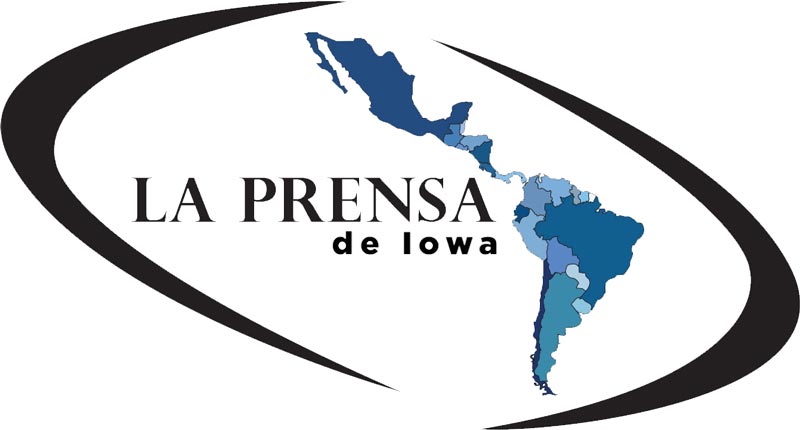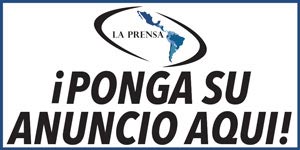UN AÑO DE RESISTENCIA: El 18 de abril que nadie podrá olvidar
/English translation provided at the end.
NICARAGUA
Joshy Castillo
joshy.castillo@gmail.com
Miércoles 17 de Abril. Nicaragua arriba a un año de protestas en medio de una profunda crisis económica que ha costado miles de personas al desempleo y cierre de decenas de empresas afectadas por la falta de compradores.
Todo cambio hace un año. Más de 500 asesinados, más de 1000 heridos, más de 800 presos políticos y secuestros cada día que incluye a los periodistas Miguel Mora y Lucía Pineda del medio de TV 100% Noticias.
Que pasó el 18 de abril de 2018?
Ortega, 73 años, enfermo, con una esposa de Vice Presidenta, y quien algunos aseguran, es el poder tras el trono, se niega a dejar el poder que por casi 40 años ha ejercido con la excepción de 17 años, entre 1990 y 2007, cuando ejerció de facto, “gobernando desde abajo”. Amparado en los poderes del estado, los que repartió entre su partido y Arnoldo Aleman, Presidente del país entre 1996 y 2001, en un pacto de caudillos al mejor estilo del siglo pasado, ha creado leyes a su antojo como la que entrego a un chino la soberanía del país a cambio de un canal interoceánico. O el cambio de los símbolos patrios como el escudo nacional, o los arboles de metal que “adornaban” la capital, por el gusto de su esposa, que aseguran es inclinada a los asuntos esotéricos.
El otrora guerrillero de los 70, quien recibió más de 3,500 millones de dolares de la Venezuela de Chávez y luego de Maduro, ahora se cuenta entre los más ricos de América Latina. Gracias a ese dinero, compro medios de comunicación, empresas de seguridad, hoteles, empresas de alimentos, empresas de tecnología, y más. Analistas internacionales aseguran que incluso Ortega es parte de la red de narcotráfico entre Cuba y Venezuela, a quienes el Asesor de Asuntos de Seguridad de EEUU John Bolton llamo el eje del mal.
Luego que asumiera el poder nuevamente en 2007, Ortega juro no dejarlo más y para eso recurrió a todo, desde fraude en las elecciones hasta una represión en contra de opositores y sociedad civil.
Después del 5 de abril del año pasado, la Reserva Indio Maíz, parte de un pulmón centroamericano, se quemaba ante el yoquepierdismo del gobierno. A través de las redes sociales, miles de jóvenes se autoconvocaron para protestar por la negligencia gubernamental. Nadie pensó que una protesta pacífica escalaría a más.
Una reforma social al seguro de pensiones fue la mecha pero el descontento se había cultivado por años. Los jóvenes tomaron la crítica en una mano y el patriotismo en la otra y dijeron basta a una tiranía de 40 años.
El 18 de abril un grupo de jóvenes universitarios y miembros de la sociedad civil, protestaron en la principal arteria del sur de la capital. Al lugar se presentaron, con camisas distintivas, adeptos de la juventud orteguista. Golpearon, patearon, y robaron equipos de los medios de comunicación. La policía no intervino a pesar de estar en el lugar. Ana Quiroz, feminista, del Movimiento de mujeres, costarricense con nacionalidad nicaragüense fue una de las agredidas.
Ana Quiroz, feminista, del Movimiento de mujeres de Nicaragua, agredida el primer dia de las protestas hace un año. De nacionalidad costarricense y nacionalizada nicaragüense, Ortega le retiro la naturalizacion y la expulso del territorio. Foto Redes
Al día siguiente la juventud se expresó en las calles. Los primeros asesinados los vimos ese día. Darwin, Hilton y Richard. El 20 asesinan a Álvaro Conrado, de apenas 15 años. Murió de un balazo en el cuello del que pudo salvarse pero no fue atendido en un hospital público por órdenes del gobierno que prohibió la atención a los rebeldes. Falleció desangrado.
Nicaragua y el mundo vieron horrorizados como la policía, el órgano que debía proteger la vida, daba la muerte. Grupos paramilitares armados, junto con la policía del régimen, asesinaron a más de 20 personas en dos días. Los medios de comunicación fueron silenciados pero logrando eludir la censura, 100% noticias, el único canal de noticias de 24 horas de transmisión, encabezó la denuncia trasmitiendo en vivo cada día. Y así la gran mayoría.
El dictador retrocedió y derogó la reforma social pero era demasiado tarde. Los jóvenes no cedieron. Pidieron la renuncia de Ortega. Las redes sociales como Twitter sirvieron para activar a los autoconvocados. Whatsapp se convirtió en una gran red para conectar a los miles de protestantes. Con piedras y la bandera Azul y Blanco, símbolo de las protestas, los jóvenes se enfrentaron a las balas de la dictadura. Expertos militares aseguran que el Ejército Nacional participó de la masacre del 30 de mayo cuando una marcha de las Madres de Abril fue atacada desde el Estadio Nacional por francotiradores que asesinaron a decenas de jóvenes.
Siete meses después los muertos suman más de 500 y hay más de 800 presos políticos y centenares de desaparecidos que se presumen muertos. Los exiliados podrían llegar a los 100 mil. Los medios independientes fueron confiscados. Confidencial de Carlos Fernando Chamorro fue invadido y cerrado. Su director está en el exilio. El canal 100% noticias fue confiscado y su director y su jefa de prensa están presos desde hace 118 días.
El regreso al poder de Ortega en 2007, significó un retroceso en la incipiente democracia nicaragüense. Los poderes del estado en manos del partido de Ortega, represión a la sociedad civil, fraudes electorales, censura a los medios de comunicación, asesinatos a campesinos de parte del ejército, corrupción galopante, fondos Albanisa para enriquecer a la familia Ortega Murillo, fueron el caldo de cultivo para que una juventud hastiada dijera basta al septuagenario dictador.
Nicaragua cumple un año resistiendo. Aislado, sancionado, sin el apoyo económico de Venezuela, sin el apoyo de la OEA, Ortega camina hacia su propia destrucción. La Vice Presidenta, su esposa, fue sancionada por los Estados Unidos en base a una ley, la Matnigsky al igual que el jefe policial Francisco Díaz, consuegro de la pareja. Por otra ley norteamericana, países relacionados con fondos de Venezuela, también están castigados y toda empresa que haga negocios con ellos, serán sujeto de sanciones.
La Iglesia Católica y su alta jerarquía ha sido clave en este año. Estas son palabras de la Conferencia Episcopal sobre este año: “un despertar de conciencia que ha sacudido los cimientos de una dictadura y ha puesto al descubierto ante el mundo las graves violaciones a los derechos humanos”.
Porque las violaciones a los más elementales derechos humanos fueron quebrantados por Ortega y sus secuaces. Desde los crímenes por parte de la policía y grupos armados paramilitares hasta los secuestros y torturas en las cárceles de la dictadura.
La Corte Interamericana de Derechos Humanos, CIDH, documento a través de grupos de trabajo, las violaciones sistemáticas que ha sufrido la población autoconvocada y los miembros de la policía que han tratado de renunciar a la institución castrense.
Un informe de la CIDH recogió miles de entrevistas, acerca de torturas, violaciones, amenazas, secuestros, exilio, y lo que resulto fueron testimonios desgarradores y crueles de una dictadura genocida, decadente pero aferrada a un poder para no perder sus privilegios.
Enlace al informe del Grupo Interdisciplinario de Expertos Independientes de la CIDH. http://gieinicaragua.org/#section02
Un diálogo nacional convocado por el gobierno a solicitud de los grandes empresarios del país y al que acudió la Alianza de organizaciones de la sociedad civil que piden la renuncia de Ortega, ha fracasado sin cumplimiento del gobierno que se niega a:
Liberación de presos políticos,
Elecciones adelantadas,
Retorno de exiliados con plenas garantías de seguridad,
Respeto a los derechos constitucionales como derecho a la protesta, a la libertad de expresión,
Justicia,
Democracia,
Libertad,
Después de un año, la Resistencia Cívica se mantiene con miles de jóvenes, de manera anónima, protestando creativamente. Las marchas, prohibidas por la dictadura, retan a la misma y los jóvenes y población en general sale a las calles a protestar. Este miércoles 17 será otra más. El gobierno advirtió que no permitirán marchas. La Unidad Azul y Blanco, que aglutina a jóvenes en su mayoría universitarios, mantiene que si habrá.
Nicaragua ya no es la misma desde hace un año. Esta valentía así lo confirma. Los jóvenes dijeron que se mantendrán en protesta hasta que se vaya el dictador. Yo les creo.
Joshy Castillo es periodista
@JoshyCastillo
joshy.castillo@gmail.com
Google Translation
Wednesday, April 17. Nicaragua arrives at a year of protests amid a deep economic crisis that has cost thousands of people unemployment and closure of dozens of companies affected by the lack of buyers.
All change a year ago. More than 500 murdered, more than 1000 injured, more than 800 political prisoners and kidnappings every day that includes journalists Miguel Mora and Lucía Pineda from TV 100% Noticias.
What happened on April 18, 2018?
Ortega, 73, sick, with a wife of Vice President, and who some claim, is the power behind the throne, refuses to leave the power that for almost 40 years has exercised with the exception of 17 years, between 1990 and 2007 , when he exercised de facto, "ruling from below". Protected by the powers of the state, which he divided between his party and Arnoldo Aleman, President of the country between 1996 and 2001, in a pact of caudillos in the best style of the last century, has created laws at will like the one I give to a Chinese the sovereignty of the country in exchange for an interoceanic canal. Or the change of the national symbols as the national shield, or the metal trees that "adorned" the capital, for the pleasure of his wife, which they assure is inclined to esoteric matters.
The former guerrilla fighter of the 70s, who received more than 3,500 million dollars from Chavez's Venezuela and later from Maduro, is now among the richest in Latin America. Thanks to that money, I buy means of communication, security companies, hotels, food companies, technology companies, and more. International analysts say that even Ortega is part of the drug trafficking network between Cuba and Venezuela, whom US Security Advisor John Bolton called the axis of evil.
After he took power again in 2007, Ortega vowed not to leave it anymore and for that he resorted to everything from fraud in the elections to a repression against opponents and civil society.
After April 5 of last year, the Indio Maíz Reserve, part of a Central American lung, burned before the yoquepierdismo of the government. Through social networks, thousands of young people called themselves to protest the government's negligence. No one thought that a peaceful protest would escalate further.
A social reform to pension insurance was the mecha but the discontent had been cultivated for years. The young people took criticism in one hand and patriotism in the other and said enough to a tyranny of 40 years.
On April 18, a group of university students and members of civil society protested in the main artery in the south of the capital. To the place they appeared, with distinctive shirts, adepts of the orteguista youth. They beat, kicked, and stole equipment from the media. The police did not intervene despite being in the place. Ana Quiroz, feminist, of the Women's Movement, Costa Rican with Nicaraguan nationality was one of the assaulted.
The next day the youth expressed themselves in the streets. We saw the first murdered that day. Darwin, Hilton and Richard. The 20 murdered Álvaro Conrado, barely 15 years old. He died of a bullet in the neck from which he could be saved but was not treated in a public hospital by orders of the government that prohibited the attention to the rebels. He died bleeding.
Nicaragua and the world watched in horror as the police, the organ that had to protect life, gave death. Armed paramilitary groups, together with the regime's police, killed more than 20 people in two days. The media were silenced but managed to avoid censorship, 100% news, the only news channel of 24 hours of transmission, led the complaint transmitting live every day. And so the great majority.
The dictator backed down and repealed the social reform but it was too late. The young people did not give in They asked for Ortega's resignation. Social networks like Twitter served to activate the autoconvocados. WhatsApp became a great network to connect thousands of Protestants. With stones and the Blue and White flag, symbol of the protests, the young people faced the bullets of the dictatorship. Military experts say that the National Army participated in the massacre on May 30 when a March of the Mothers of April was attacked from the National Stadium by snipers who murdered dozens of young people.
Seven months later, the dead total more than 500 and there are more than 800 political prisoners and hundreds of disappeared people presumed dead. The exiles could reach 100 thousand. The independent media were confiscated. Confidential of Carlos Fernando Chamorro was invaded and closed. Its director is in exile. The 100% news channel was confiscated and its director and its press chief have been in prison for 118 days.
The return to power of Ortega in 2007, meant a setback in the nascent Nicaraguan democracy. The powers of the state in the hands of the Ortega party, repression of civil society, electoral fraud, censorship of the media, assassinations of peasants by the army, galloping corruption, Albanisa funds to enrich the Ortega Murillo family were the breeding ground for a bored youth to say enough to the septuagenarian dictator.
Nicaragua has a year of resistance. Isolated, sanctioned, without the economic support of Venezuela, without the support of the OAS, Ortega walks towards his own destruction. The Vice President, his wife, was sanctioned by the United States on the basis of a law, the Matnigsky as well as the police chief Francisco Díaz, consuegra of the couple. By another American law, countries related to Venezuelan funds are also punished and any company that does business with them will be subject to sanctions.
The Catholic Church and its high hierarchy have been key in this year. These are words of the Episcopal Conference about this year: "an awakening of conscience that has shaken the foundations of a dictatorship and has exposed the grave violations of human rights before the world."
Because the violations to the most elementary human rights were broken by Ortega and his followers. From the crimes by the police and armed paramilitary groups to kidnappings and torture in the jails of the dictatorship.
The Inter-American Court of Human Rights, IACHR, document through working groups, the systematic violations suffered by the self-convened population and the members of the police who have tried to renounce the military institution.
A report by the IACHR gathered thousands of interviews, about torture, rape, threats, kidnappings, exile, and what resulted were heartbreaking and cruel testimonies of a genocidal dictatorship, decadent but clinging to a power so as not to lose its privileges.
Link to the report of the Interdisciplinary Group of Independent Experts of the IACHR.
http://gieinicaragua.org/#section02
A national dialogue convened by the government at the request of the country's big businessmen and attended by the Alliance of civil society organizations calling for Ortega's resignation, has failed without government compliance, which refuses to:
Release of political prisoners,
Advanced elections,
Return of exiles with full security guarantees,
Respect for constitutional rights as the right to protest, to freedom of expression,
Justice,
Democracy,
Freedom,
After a year, the Civic Resistance is maintained with thousands of young people, anonymously, protesting creatively. The marches, prohibited by the dictatorship, challenge it and the young people and the population in general take to the streets to protest. This Wednesday 17 will be another one. The government warned that they will not allow marches. The Blue and White Unit, which brings together mostly university students, maintains that there will be.
Nicaragua is no longer the same one a year ago. This courage confirms this. The youths said they will remain in protest until the dictator leaves. I believe them.

























